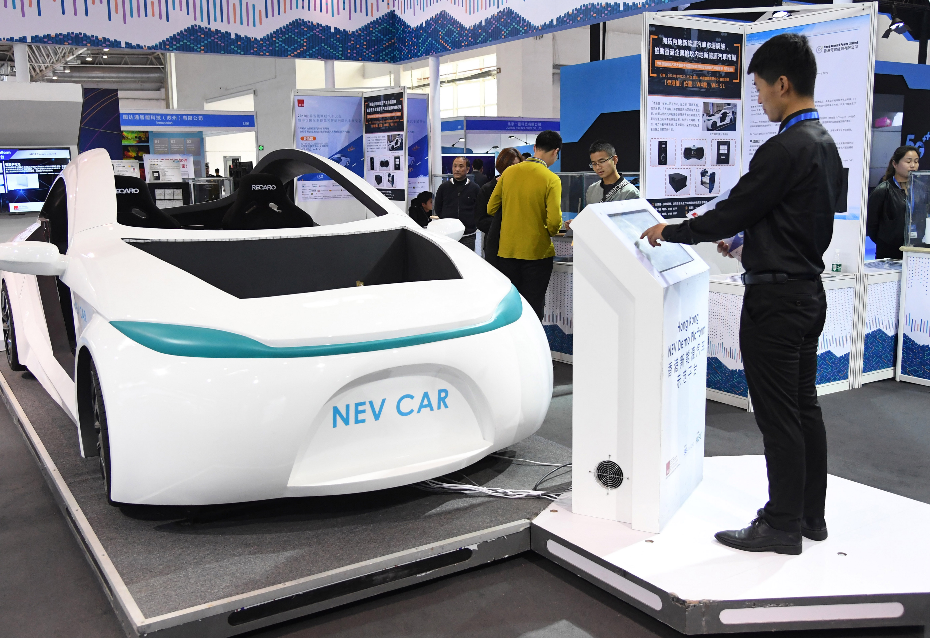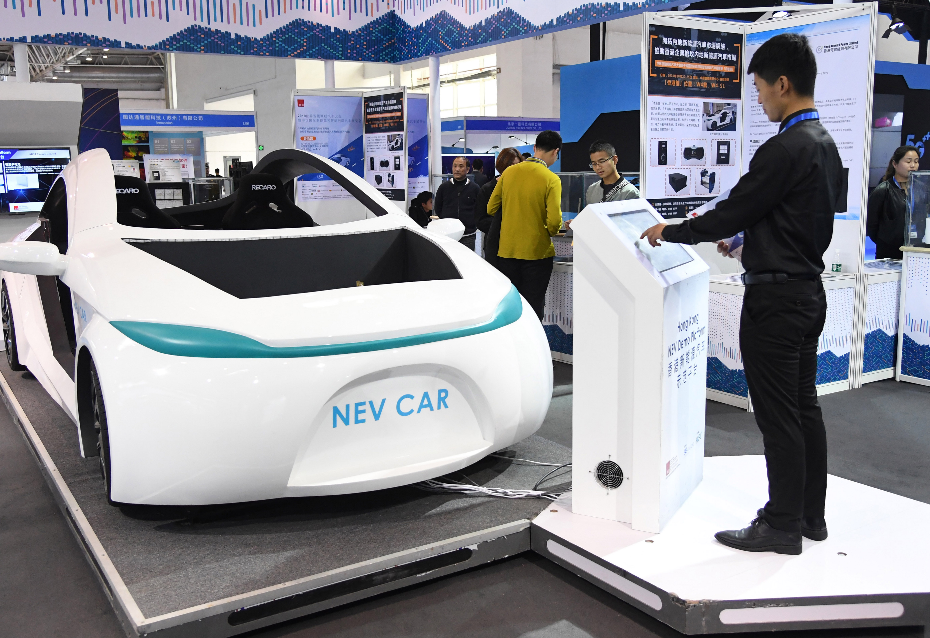
The photo shows a new energy vehicle is on display at World Intelligent Connected Vehicles Conference 2019 in Beijing, capital of China, Oct. 22, 2019. (Xinhua/Ren Chao)
BEIJING, July 24 (Xinhua) -- The new energy vehicle (NEV) industry development plan for 2021-2035 formulated by the Ministry of Industry and Information Technology (MIIT) has been submitted to the State Council, China's cabinet, for approval, Xin Guobin, vice minister of MIIT, told a press conference, on Thursday.
Xin said that new energy has become an important force leading the transformation and upgrading of the automobile industry. The domestic automobile industry has gradually recovered. In June, the country's auto production and sales increased by 22.5 percent and 11.6 percent, respectively.
He pointed out that the development plan will further strengthen confidence in promoting development of the NEV industry and clarify development goals.
Meanwhile, the competent authorities will issue an action plan to implement the electrification of vehicles in the public field and further promote electrification of buses, taxis, and urban logistics vehicles.
Electrification is the foundation of automobile intelligence. Electrification, intelligence, networking, sharing, and weight reduction will be the development direction of the new automobile industry chain, according to an expert in the NEV field.
Regarding the new consumption patterns in the NEV industry, Xin said that both battery charging and swapping are energy supplement methods for electric vehicles. The MIIT encourages enterprises to explore the application of the "separation of vehicle and battery" model to meet the needs of different markets.
Compared with the battery charging method, the battery swap mode can supplement energy through fast battery swaps, which can solve some users' difficulty in charging, slow charging, and difficulty in the construction of charging piles in old communities. The mode can also reduce costs and give birth to new service formats, according to Xin.
At the press conference, Xin said that the MIIT will work with relevant departments to continue to vigorously promote the construction of new energy vehicle charging and swapping infrastructure, improve relevant technical standards and management policies, and encourage enterprises to develop battery swap model-based vehicles according to the applicable scenarios.
The battery swap mode will be piloted in regions including Beijing and Hainan, according to Xin. (Edited by Hu Pingchao with Xinhua Silk Road, hupingchao@xinhua.org)




 A single purchase
A single purchase









